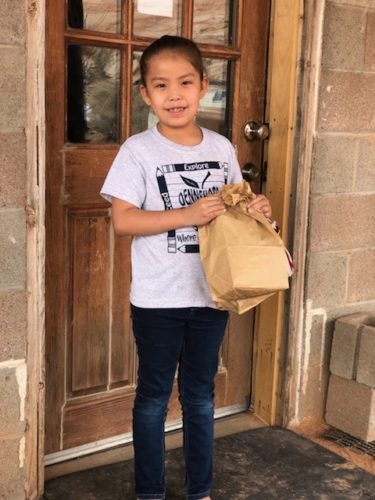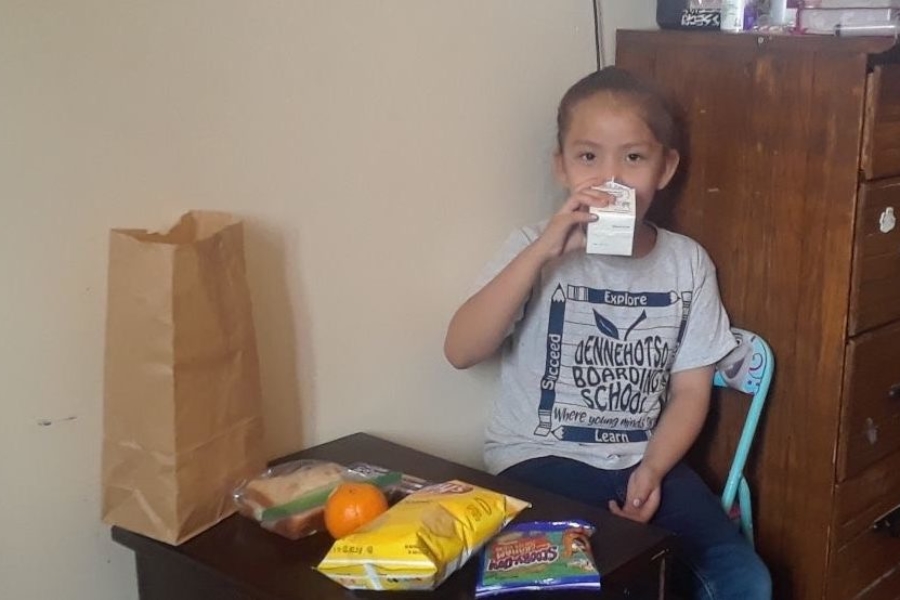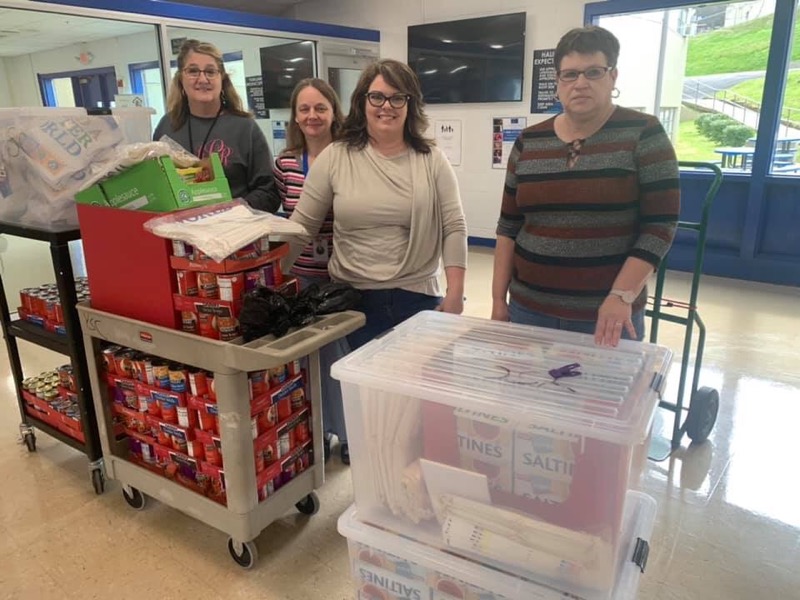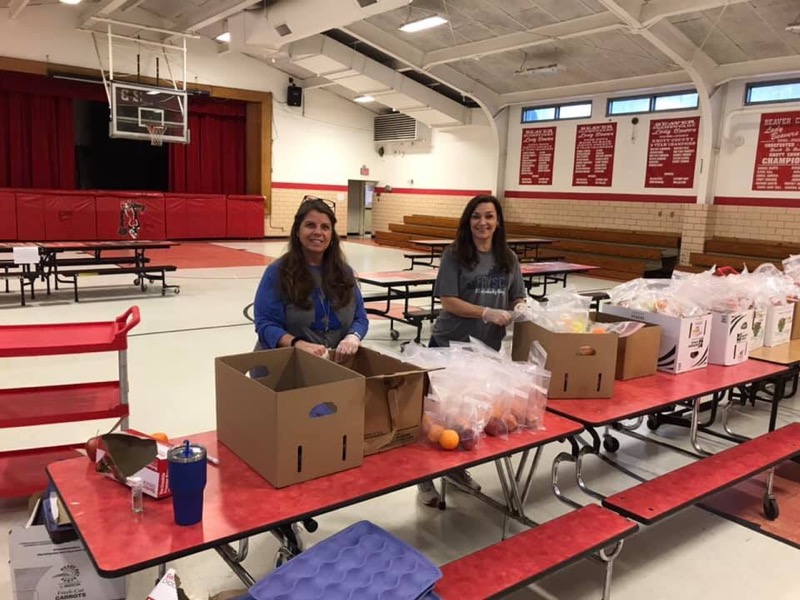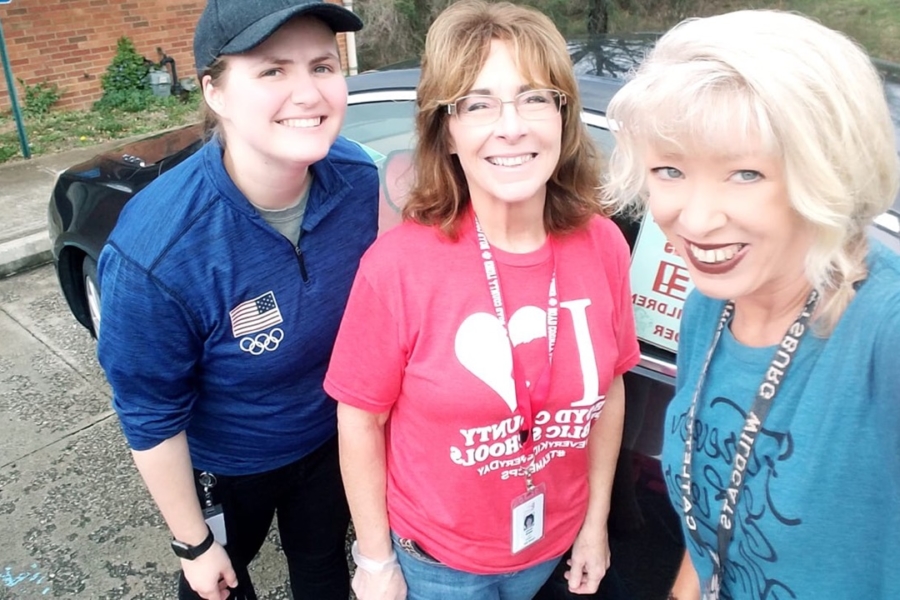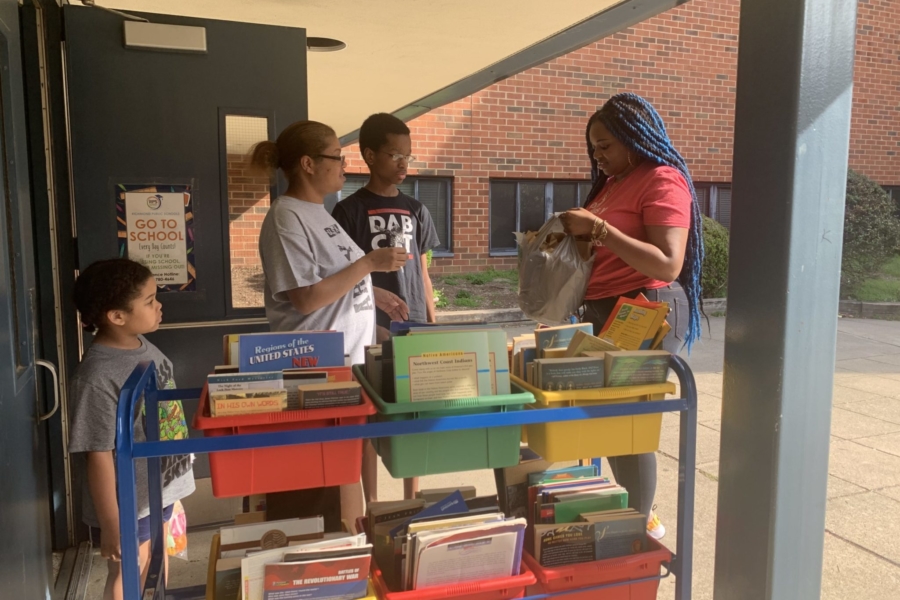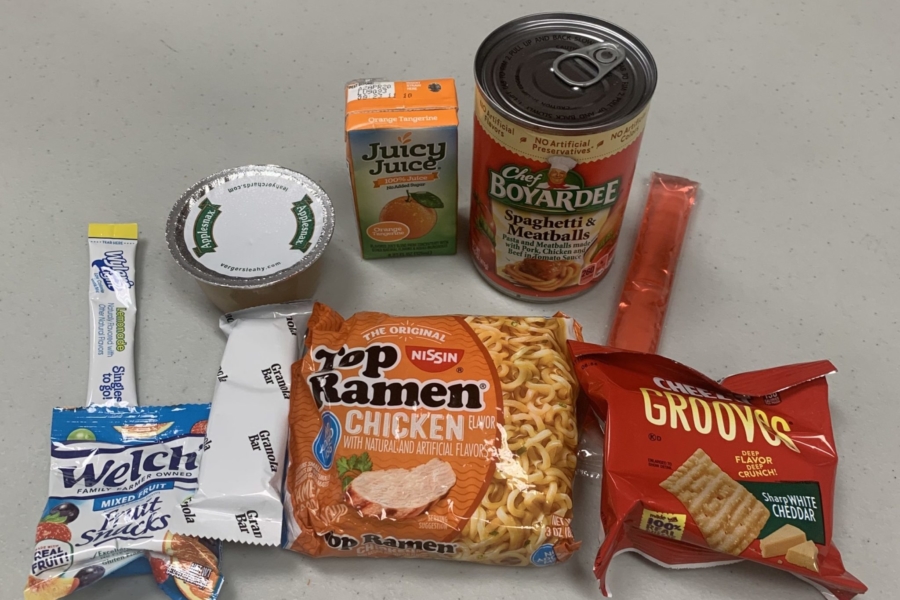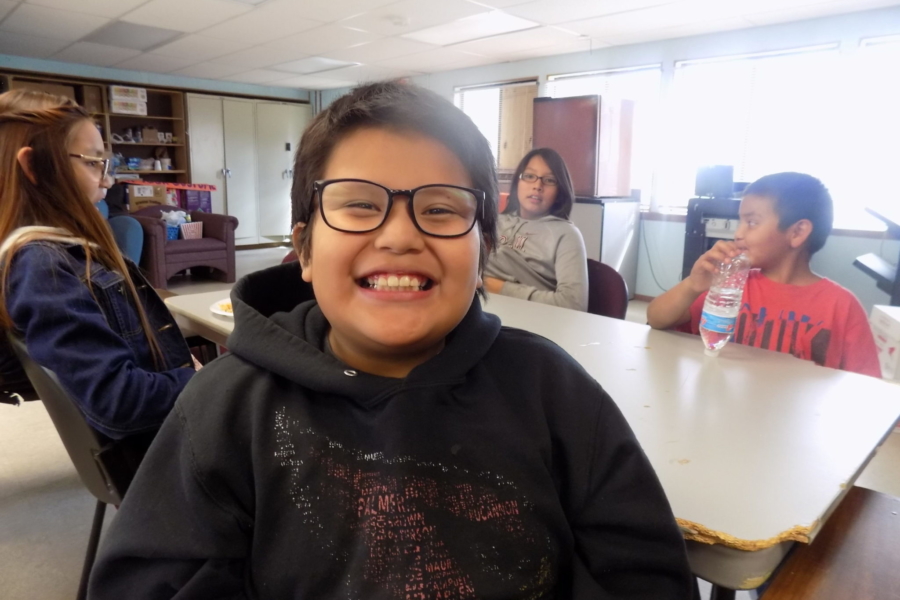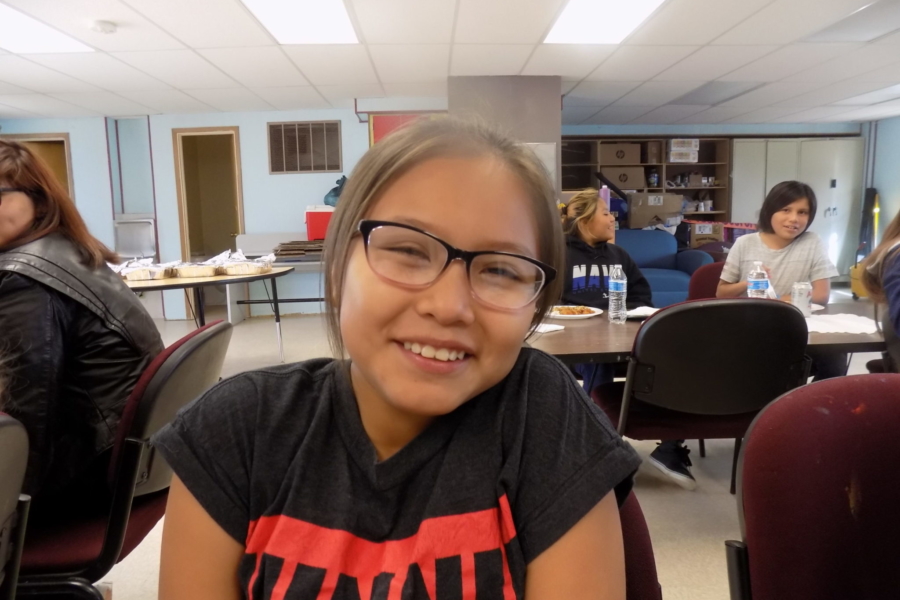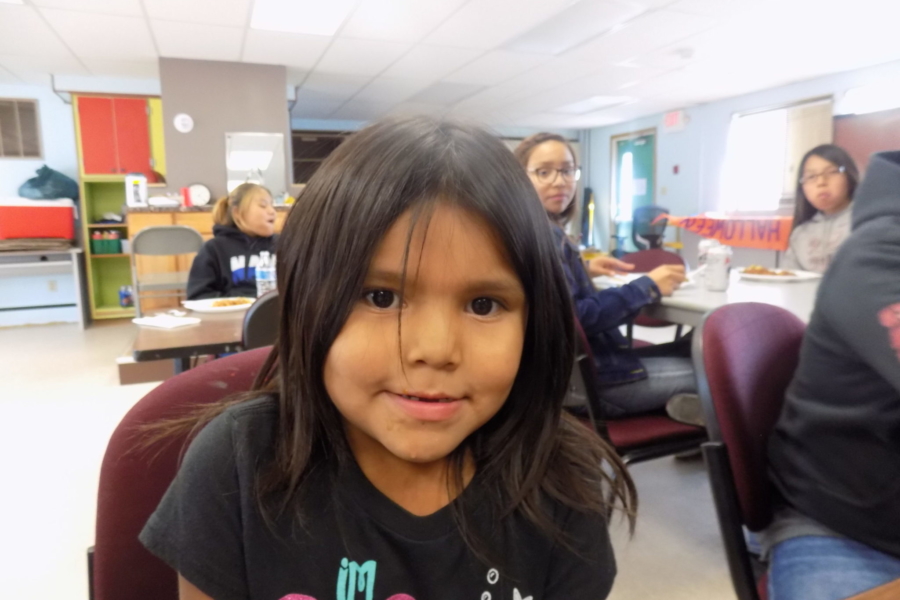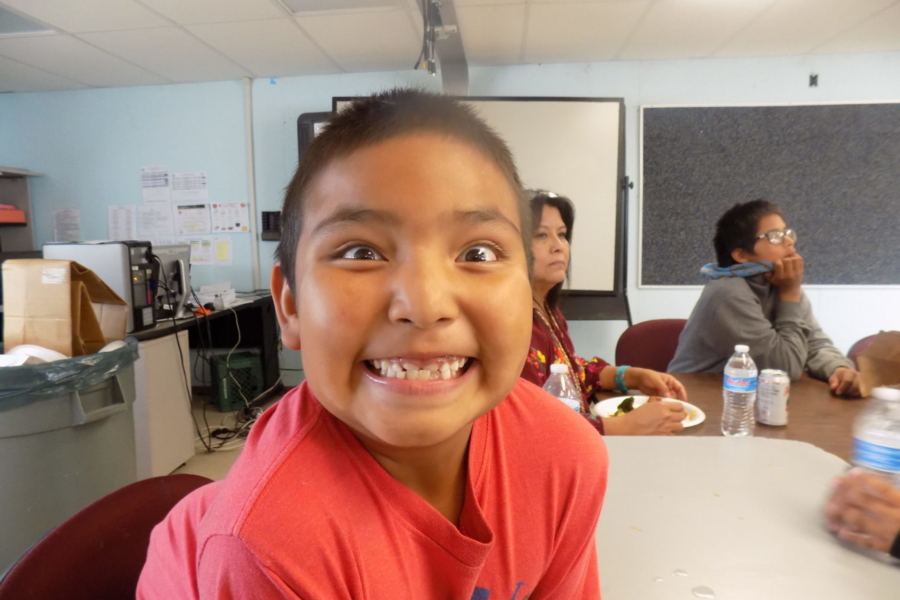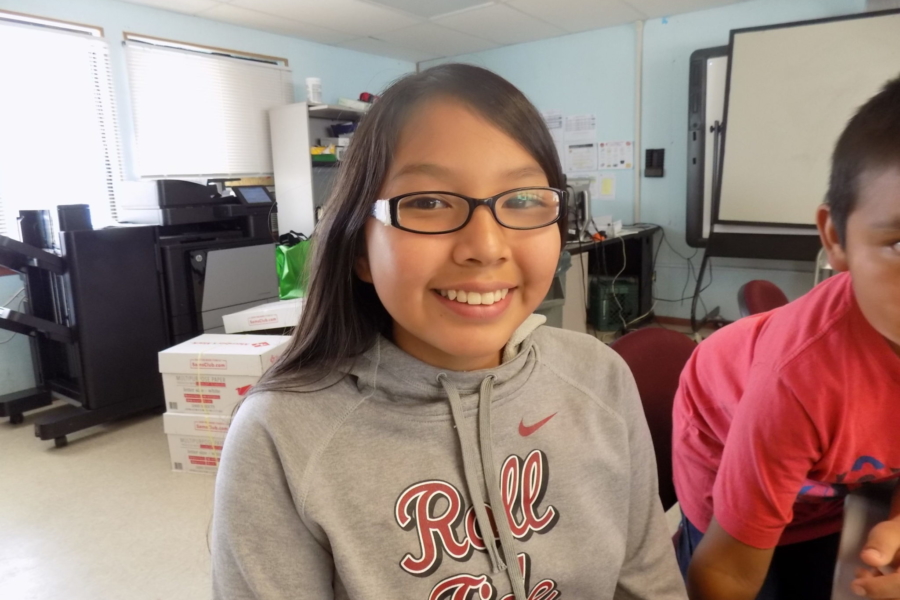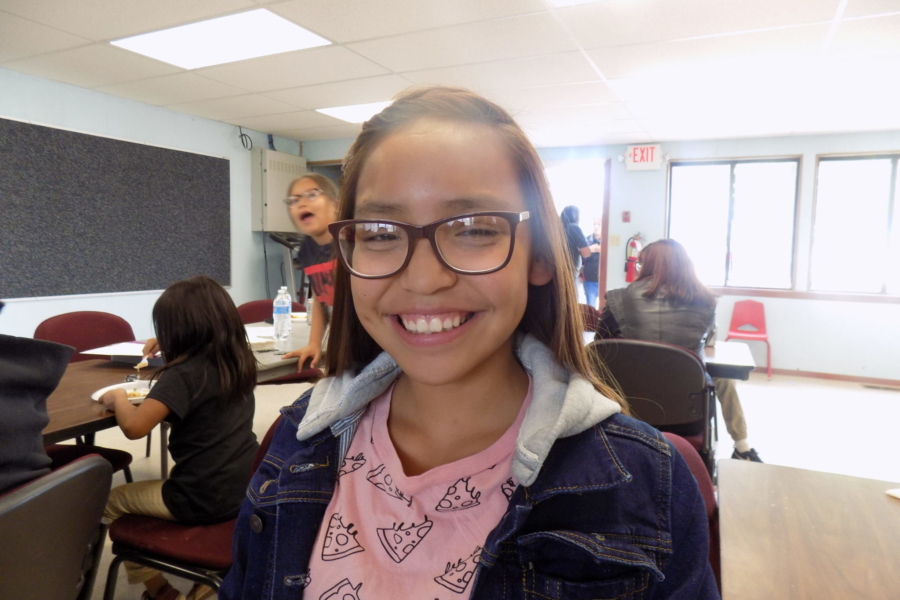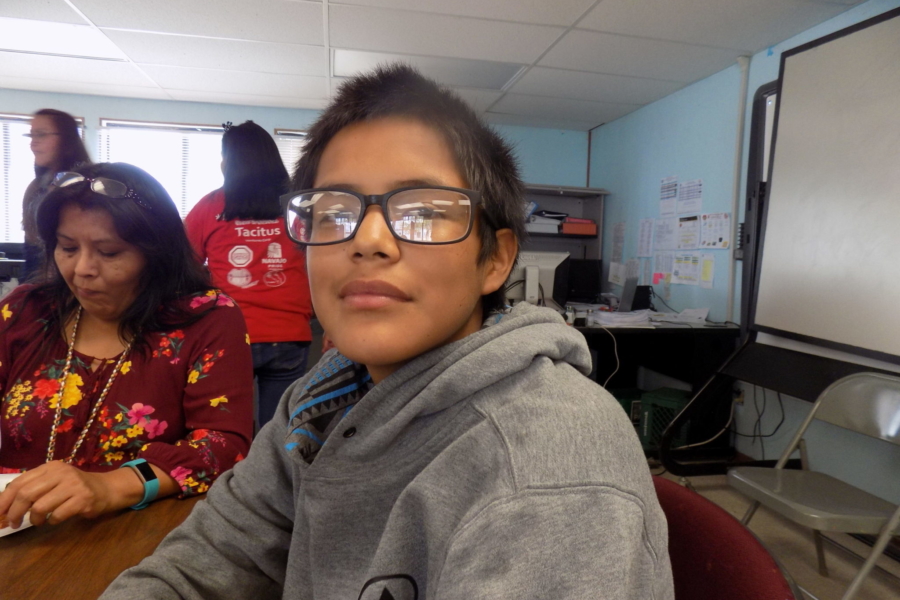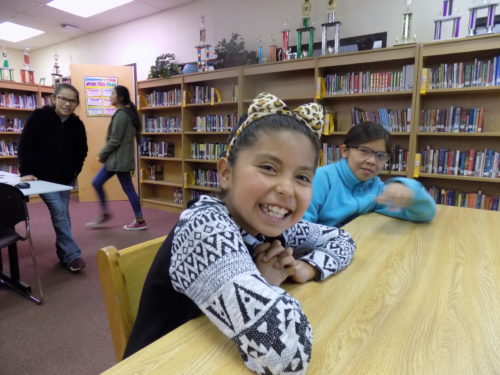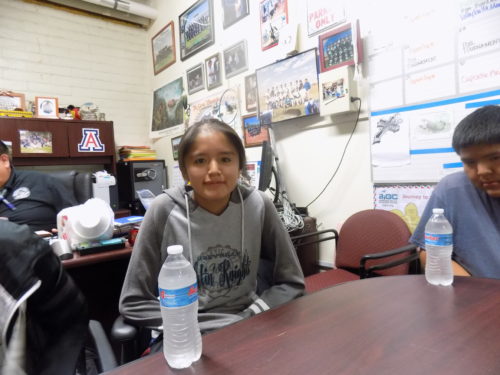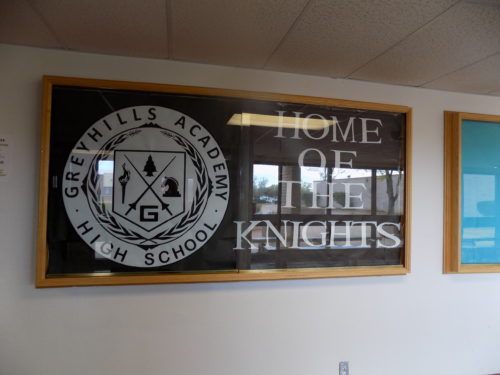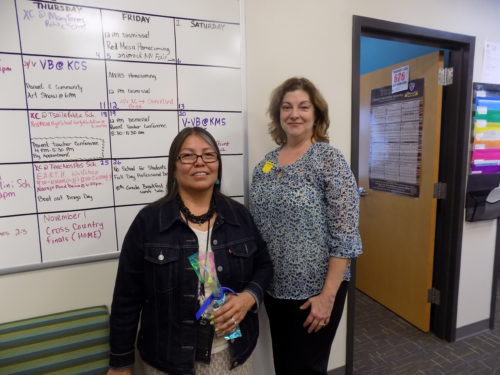*Note: This blog was written prior to the COVID-19 pandemic. Although much has changed regarding our sponsored children’s learning experience in the past months, our On the Road stories remain relevant in regards to our volunteer coordinator’s work and the impact of sponsorship on children in our program thanks to our sponsors. We are pleased to continue to share stories with you about our work.
***
Located on the Navajo Indian Reservation in Arizona, the St. Michael’s Special Education School is a nonprofit educational institution that offers support to children and adults whose disabilities have made conventional schools impractical or impossible.
The school has been a Children Incorporated affiliated project since 1979. It consists of an Educational Division for disabled children (ages 6-22) and a Day Treatment Division for disabled adults (ages 22 and older). The school’s devoted and highly trained staff provides students, like those in our sponsorship program, and adults with the personal attention they need, as well as nutritious meals and encouragement.
As the only school on the Navajo Reservation that is dedicated to the care and education of moderate to severely disabled children and adults, the St. Michael’s Special Education School plays a crucial role in the community.
Nowhere else to receive help
As the only school on the Navajo Reservation that is dedicated to the care and education of moderate to severely disabled children and adults, the St. Michael’s Special Education School plays a crucial role in the community.
“In addition to the academic campus, there is also a group home at the school where some of the children and adults board. The dedicated administration strives to see that each person in attendance is given the chance to reach their best potential in a safe and caring environment,” explained Renée Kube, Children Incorporated Director of U.S. Programs.
“The institution itself runs on a skeleton budget and is able to accomplish miracles for the students and adult members thanks to a variety of partners and the administrators’ tireless advocacy.”
The Sidewalk Project
While visiting the St. Michael’s Special Education School, Renée and our President and CEO, Ronald Carter, met with the school’s Executive Director and our volunteer coordinator, Michelle.
“Michelle explained to me during our meeting that there is a constant, ongoing need for both maintenance of the structures of the school as well as improvements to how the school is able to provide for the physical and educational needs of the children and adults,” said Renée.
Renée and Ron also discussed with Michelle the progress of the Sidewalk Project, a special project funded by our Hope In Action Fund, thanks to a generous donation from our partner, International Student Exchange. The purpose of the Sidewalk Project is to allow wheelchair-bound children to access the school’s playground. Hope In Action Funds from Children Incorporated covered the required survey, site preparation, materials and supplies.
While at the school, Michelle showed Renée the areas around the playground where the survey had been conducted and the site preparation was underway. Next, the concrete will be poured, and then rails will be installed.
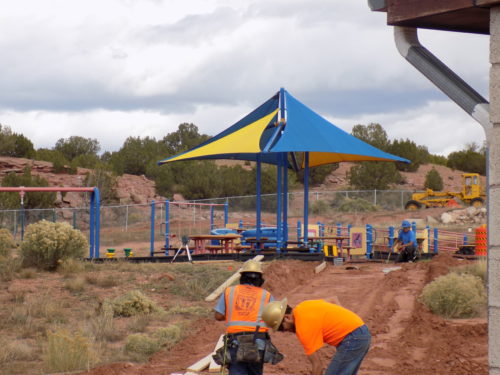
The Sidewalk Project under construction
“Michelle is so excited about this project and is so grateful to both Children Incorporated and International Student Exchange,” said Renée.
Support from the community
As they continued to talk, Michelle told Renée about how she, unfortunately, has had to downsize staff, as salaries use a large percent of the funds to operate the school. The gap is filled as much as possible by help from an organization that provides volunteers for three-year terms in teaching, nursing, and other caretaker roles.
But it all wasn’t bad news that Michelle had to share. She informed Renée that since her last visit in 2016, the Navajo Housing Authority awarded a tribal grant for the construction of three new group homes on the campus.
“Michelle feels this will make St. Michael’s more attractive to parents who live a greater distance away from the school and want a nice place for their children to stay from Sunday nights through Thursday nights,” said Renée.
“According to Michelle, another Navajo tribal grant also awarded funds for new buses to get the children to and from school.”
Meeting with our sponsored children
Before leaving the school, Renée had a chance to meet with a few of our sponsored children.
Clay* is a 16-year-old who is very happy and cheerful. He likes to watch football on television, especially the Arizona Cardinals. He also really likes the Disney DVDs of “Cars 1, 2, and 3.” He has one older brother. Their parents are divorced, and their mother has custody. Both parents work, but their jobs are very low paying. Thanks to his sponsor’s support, Clay has everything he needs to be comfortable and healthy at St. Michael’s and at home.
Michelle pointed out that both Clay and Kyle are two of the students who will benefit from the new sidewalk installed from the classroom building to the playground, thanks to the Sidewalk Project.
Next, Renée met Kyle*. Kyle is 12 years old. He is an only child, and he and his single mother live with Kyle’s maternal grandparents. Kyle’s favorite subject in school is physical therapy. He also enjoys painting, which is also therapeutic for him. Kyle loves to watch music videos, and he is crazy about country music. Michelle told Renée that when Kyle goes home on the weekends, his chore is to fold all the laundry. Kyle enjoys the task and his teachers told his mom it is good physical therapy for him.
After the children left, Michelle pointed out that both Clay and Kyle are two of the students who will benefit from the new sidewalk installed from the classroom building to the playground, thanks to the Sidewalk Project. Even if they cannot get on every piece of equipment, they still are looking forward to going to the playground. Before the sidewalk, the teachers could no longer carry them, and it was too difficult to push their wheelchairs through sandy or muddy soil. Now, thanks to the sidewalk, all of the wheelchair-bound students will have better access to the playground.
*Names changed to protect the children.
***
Due to the generosity of our sponsors, all of our enrolled Native American children are currently matched. However, we have many other U.S. children who are in need of a sponsor’s encouragement and support. You may also wish to consider a donation to our Covid-19 Response Fund or one of our other special funds at this time. Please feel free to contact us for further information.
HOW DO I SPONSOR A CHILD?
You can sponsor a child with Children Incorporated in one of three ways: call our office at 1-800-538-5381 and speak with one of our staff members; email us at sponsorship@children-inc.org; or go online to our donation portal, create an account, and search for a child that is available for sponsorship.

